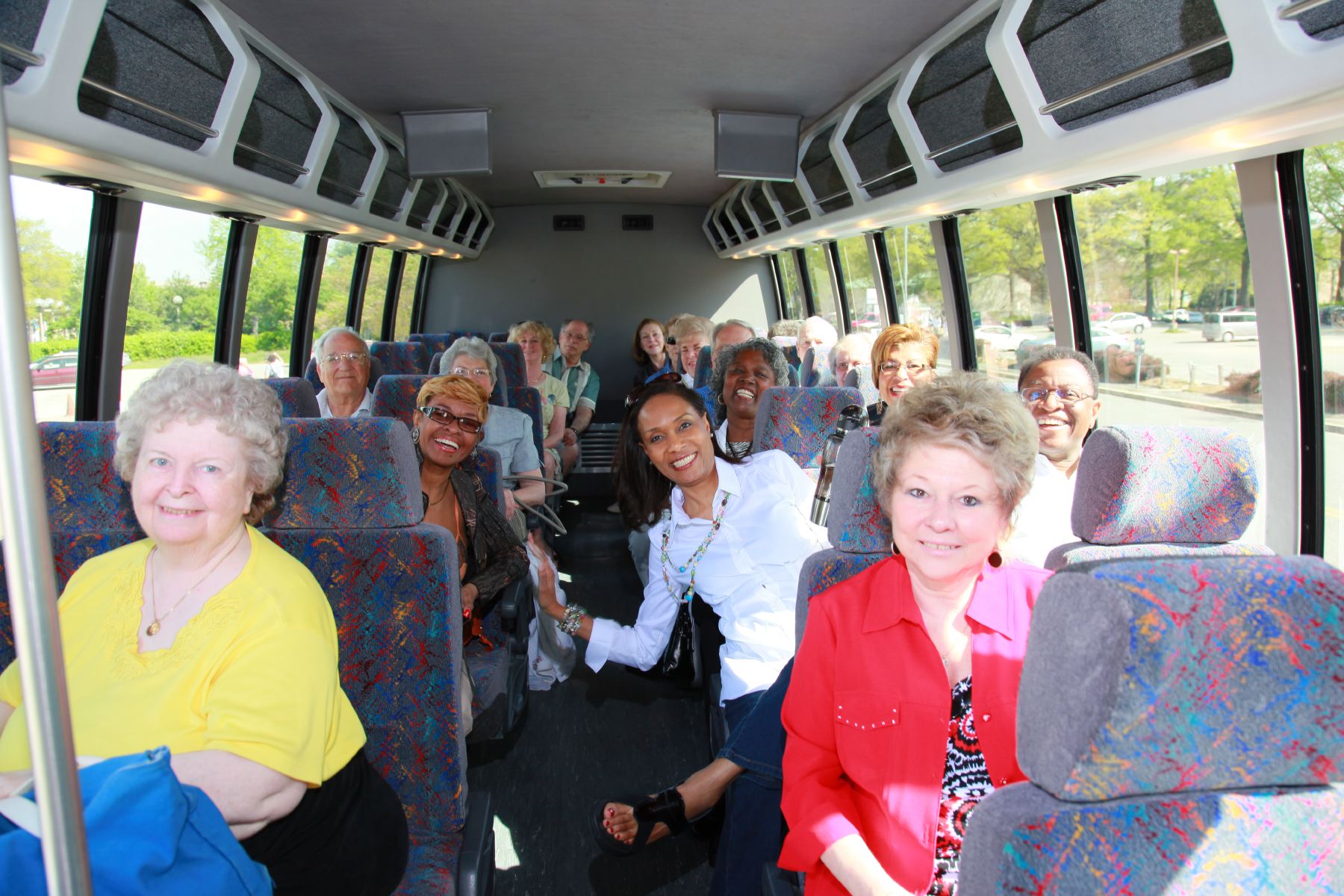Senior citizen trips packages offer a world of exciting travel opportunities tailored to the needs and preferences of older adults. This comprehensive guide explores diverse package types, from relaxing cruises to adventurous excursions, highlighting popular destinations and factors influencing package selection. We delve into pricing, health and safety considerations, and provide illustrative examples to help seniors plan their dream vacations.
Whether you’re an active senior seeking thrilling adventures or prefer a more relaxed pace, there’s a perfect package to suit your lifestyle. We examine the key considerations – budget, accessibility, health concerns, and personal interests – to help you make informed decisions. Learn how to find the best value for your money and ensure a safe and enjoyable travel experience.
Destinations Popular with Senior Citizens
Senior travel is a booming sector, with retirees increasingly seeking enriching and accessible experiences. Many factors influence destination choices, including climate, ease of navigation, cultural attractions, and healthcare access. This report highlights top destinations favored by senior travelers, examining their accessibility and suitable activities.
Top Ten Destinations for Senior Travelers
The following list represents ten destinations consistently ranking highly among senior travelers, considering factors such as climate, accessibility, and cultural richness. These destinations offer a blend of relaxation, exploration, and comfort tailored to the needs of older adults.
- Portugal: Known for its mild climate, beautiful coastline, and historic cities like Lisbon and Porto, Portugal offers a relaxed pace and good accessibility. The country’s rich history and culture provide ample opportunities for exploration.
- Italy: With its stunning scenery, delicious cuisine, and rich history, Italy is a perennial favorite. Many cities offer accessible transportation and accommodations, making it easy to navigate.
- Spain: Similar to Portugal, Spain boasts a pleasant climate, beautiful beaches, and vibrant cities like Barcelona and Seville. The country’s diverse culture and architecture provide endless opportunities for exploration.
- France: From the charming villages of Provence to the iconic sights of Paris, France offers a diverse range of experiences. Many areas offer good accessibility, and the country’s extensive high-speed rail network makes travel convenient.
- Greece: The stunning islands and ancient ruins of Greece attract many senior travelers. While some areas may be less accessible than others, many islands and popular sites are adapting to cater to seniors’ needs.
- Canada: Canada’s stunning natural beauty, coupled with its accessible cities and efficient healthcare system, makes it an attractive destination. Many national parks offer accessible trails and accommodations.
- United States (specifically Florida and California): Florida’s warm climate and numerous retirement communities make it popular, while California offers diverse landscapes and accessible cities. Both states have good healthcare infrastructure.
- Australia: Australia’s diverse landscapes, from the beaches of Sydney to the Outback, offer a wide range of experiences. Many cities are increasingly adapting to improve accessibility for seniors.
- Japan: Japan’s unique culture, efficient public transportation, and modern amenities make it a popular destination, although navigating some traditional areas might require more effort.
- United Kingdom: The UK’s rich history, charming towns, and easy access to various transportation options make it a popular choice. Many historic sites are actively improving accessibility features.
Accessibility Features in Popular Senior Travel Destinations
Accessibility varies across destinations, but many are actively improving their infrastructure to cater to senior travelers’ needs. Factors to consider include wheelchair access, ramp availability, accessible transportation options, and availability of assistive devices.Many of the destinations listed above are investing in improving accessibility. For instance, many European cities are upgrading their public transportation systems to include more accessible buses and trains with ramps and designated seating.
Similarly, many hotels and tourist attractions are adding ramps, elevators, and wider doorways to improve access for wheelchair users. Accessible transportation options such as taxis and ride-sharing services are also widely available in most major cities. However, it is always advisable to check specific accessibility details for individual locations and accommodations before booking a trip.
Activities Suitable for Senior Travelers
Destinations cater to diverse interests, providing a range of activities suitable for different physical abilities and preferences. Many locations offer gentle walking tours, scenic drives, cultural experiences like museum visits and cooking classes, and opportunities for relaxation and rejuvenation.Examples include: gentle walking tours of historic districts in Portugal, leisurely boat trips in Greece, visits to art galleries and museums in Italy and France, scenic train journeys across Canada, and relaxing spa treatments in various locations.
The key is to choose activities that align with individual fitness levels and preferences, ensuring a comfortable and enjoyable travel experience.
Factors Influencing Package Selection: Senior Citizen Trips Packages

Choosing a travel package is a significant decision for senior citizens, impacting their enjoyment, safety, and overall well-being. Numerous factors play a crucial role in their selection process, ranging from budgetary constraints to personal health considerations and preferred travel styles. Understanding these influencing factors is key for travel agents and tour operators aiming to provide tailored and successful travel experiences for this demographic.Senior travelers prioritize a careful assessment of several key elements before committing to a package.
This prioritization reflects the changing needs and preferences of this age group, requiring a nuanced approach from the travel industry to meet their expectations.
Budgetary Considerations
Budget is often the primary factor influencing package selection for seniors. Fixed incomes and potential health-related expenses mean that cost-effectiveness is paramount. Seniors meticulously compare prices, looking for value for money and often opting for packages that include comprehensive services, minimizing additional spending during the trip. This may involve choosing destinations with lower costs of living or opting for packages that bundle flights, accommodation, and some excursions.
For example, a package offering all-inclusive meals and transportation may be more attractive than one requiring individual budgeting for each aspect of the trip.
Check best vacation spots for senior citizens to inspect complete evaluations and testimonials from users.
Health and Accessibility Concerns
Health concerns significantly shape travel choices for senior citizens. Accessibility features are a top priority. This includes the availability of accessible transportation, accommodation with ramps and grab bars, and excursions designed with mobility limitations in mind. Packages that minimize strenuous activities and offer options for rest and relaxation are highly sought after. Furthermore, the proximity of medical facilities and the availability of emergency services are also important considerations.
For example, a cruise that offers easy access to medical personnel onboard might be favored over a trekking expedition in a remote area.
Interests and Activities
The type of activities and interests offered within a package heavily influences senior travelers’ decisions. Many seniors prioritize relaxation and leisurely activities, such as sightseeing tours at a comfortable pace, cultural experiences, and opportunities for socializing with fellow travelers. Others may seek more active pursuits, but these will be tailored to their physical capabilities. The availability of guided tours, comfortable transportation, and opportunities for personal interests (like gardening tours or historical site visits) are critical factors.
A package focused on historical sites in Europe, for example, would attract history buffs, while a relaxing cruise in the Caribbean might appeal to those seeking tranquility.
Travel Style and Pace
Seniors have diverse travel styles. Some prefer independent travel, while others favor the structure and support provided by group tours. The pace of the trip is another crucial element. Seniors often prefer a slower, more relaxed pace, allowing ample time for rest and avoiding rushed itineraries. Packages that offer flexibility and options for customization are more appealing than rigidly structured ones.
For example, a self-guided walking tour with adjustable itineraries would cater to those seeking independence, while a guided tour with scheduled stops and built-in rest periods would suit those who prefer a more structured approach.
Reputation and Reviews
The reputation of the travel agency or tour operator is a key consideration for seniors. They often rely heavily on reviews and testimonials from other travelers, especially those of similar age and interests. A strong reputation for reliability, safety, and customer service significantly influences their choice. The presence of positive reviews emphasizing accessibility, attentive staff, and well-organized trips can significantly increase a package’s appeal to this demographic.
For instance, a tour operator with numerous positive reviews specifically mentioning their attention to the needs of senior travelers would likely attract more bookings.
Pricing and Value for Money

Securing a rewarding senior citizen travel package hinges significantly on understanding the pricing landscape and maximizing value. A range of factors, from the duration of the trip and the destination’s popularity to the level of luxury included, influence the final cost. Smart planning and research can unlock significant savings without compromising on a fulfilling experience.Finding affordable yet high-value senior citizen travel packages requires a strategic approach.
Websites specializing in senior travel often offer discounted rates, early bird specials, and last-minute deals. Consider traveling during the shoulder seasons (spring and fall) to avoid peak season surcharges. Joining senior travel clubs or utilizing loyalty programs with airlines and hotels can also yield considerable savings. Furthermore, all-inclusive packages frequently offer better value than booking individual components separately, simplifying the planning process and offering price predictability.
Price Ranges for Senior Citizen Trip Packages, Senior citizen trips packages
Prices for senior citizen travel packages vary widely depending on several factors. A short, domestic getaway, such as a three-day trip to a nearby city, might range from $500 to $1500 per person, inclusive of accommodation and some excursions. More extensive domestic trips, perhaps a week-long tour of national parks, could cost between $1500 and $4000 per person.
International trips, especially to popular destinations in Europe or Asia, can range from $3000 to $8000 or more, depending on the length of stay and level of luxury. Cruises, a popular option for seniors, offer packages ranging from a few thousand dollars for shorter trips to tens of thousands for longer, more luxurious voyages. These figures are estimates and can vary considerably based on the specific package inclusions and the time of year.
Strategies for Finding Affordable and High-Value Travel Packages
Several strategies can help seniors find affordable, high-value travel packages. Websites dedicated to senior travel often aggregate deals from various providers, allowing for easy comparison shopping. Utilizing price comparison tools and travel agents specializing in senior travel can streamline the search for the best value. Flexibility with travel dates can significantly impact price; opting for mid-week departures or traveling during the off-season can often result in substantial savings.
Consider package deals that include flights, accommodation, and some excursions, as these often offer better value than booking individual components separately. Lastly, reading reviews and comparing inclusions carefully is crucial to ensure the package aligns with expectations and offers good value for the money.
Sample Package Comparison
The following table compares three different senior citizen travel packages to the same destination – a week-long trip to Yellowstone National Park:
| Package Name | Price per Person | Inclusions | Exclusions |
|---|---|---|---|
| Yellowstone Explorer | $1800 | Accommodation (mid-range hotel), guided tours (3 days), park entry fees, transportation within the park. | Flights, meals (except breakfast), optional activities. |
| Yellowstone Deluxe | $3000 | Accommodation (luxury lodge), guided tours (daily), park entry fees, transportation within the park, all meals, some optional activities. | Flights, certain optional activities (e.g., helicopter tours). |
| Yellowstone Budget | $1200 | Accommodation (budget-friendly motel), park entry fees, basic transportation within the park. | Flights, meals, guided tours, most activities. |
Health and Safety Considerations
Planning a senior citizen trip requires careful consideration of health and safety to ensure a worry-free and enjoyable experience. Failing to address potential health issues and safety concerns can significantly impact the trip’s success and potentially lead to unforeseen complications. This section Artikels key precautions for before, during, and after travel, the importance of travel insurance, and accessible travel options.Prioritizing health and safety is paramount for senior travelers.
Thorough planning and preparedness can mitigate risks and contribute to a smoother, more enjoyable trip.
Pre-Trip Precautions for Seniors
Before embarking on any trip, seniors should consult their physician for a pre-travel checkup. This checkup should include reviewing existing medical conditions, updating vaccinations, and discussing necessary medications. It’s crucial to obtain any required prescriptions well in advance and carry them in their original containers, along with a copy of the prescription. Packing a comprehensive first-aid kit, including any personal medications, is also essential.
Furthermore, informing family or friends of the travel itinerary, including contact details and emergency contacts, ensures someone is aware of their whereabouts.
- Consult your physician for a pre-travel checkup and discuss necessary vaccinations.
- Obtain and pack all necessary medications in their original containers, along with copies of prescriptions.
- Pack a comprehensive first-aid kit tailored to your specific needs.
- Inform family or friends of your itinerary and emergency contact information.
- Make copies of important documents, such as passports, driver’s licenses, and insurance information, and store them separately from the originals.
During-Trip Safety Measures
Maintaining awareness of one’s surroundings is crucial. Seniors should be mindful of potential hazards, such as uneven pavements or crowded areas. Staying hydrated, especially in warmer climates, is vital. Regular breaks are necessary to prevent fatigue. Utilizing readily available assistance, such as asking for help with luggage or navigating unfamiliar environments, should not be considered a sign of weakness but a proactive measure for safety and well-being.
It’s also important to remain aware of personal belongings and avoid displaying large amounts of cash.
Post-Trip Health Monitoring
Following a trip, it’s important to monitor for any delayed reactions to medications or changes in health. If any health issues arise, seeking prompt medical attention is crucial. Keeping a record of any incidents or health concerns during the trip can assist medical professionals in providing the best care if needed.
The Role of Travel Insurance for Seniors
Travel insurance provides crucial financial protection against unexpected events such as medical emergencies, trip cancellations, or lost luggage. Comprehensive policies often cover medical expenses, evacuation costs, and repatriation, significantly reducing the financial burden of unforeseen circumstances. Choosing a policy with adequate coverage for medical expenses is particularly important for seniors, as medical costs can be substantial, especially in foreign countries.
Many policies also offer 24/7 emergency assistance services, providing peace of mind and readily available support. For example, a senior needing emergency medical care in a foreign country could incur significant costs without travel insurance, potentially jeopardizing their financial stability.
Accessible Transportation and Accommodation Options
Many transportation and accommodation providers offer accessible options designed to cater to the needs of seniors and individuals with disabilities. Airlines often provide assistance for boarding and deplaning, while many hotels offer wheelchair-accessible rooms and facilities. Cruise lines frequently offer accessible cabins and onboard amenities. Public transportation systems in many cities are increasingly adapting to accommodate seniors, including features like ramps, elevators, and designated seating.
When booking travel, it’s essential to specify any accessibility requirements to ensure appropriate arrangements are made. This proactive approach guarantees a more comfortable and enjoyable travel experience.
Planning a memorable trip as a senior doesn’t have to be daunting. By carefully considering the factors discussed – package type, destination, budget, and health considerations – you can create a fulfilling and enriching travel experience. With the right planning and preparation, seniors can enjoy the world’s wonders, creating lasting memories and enriching their lives through travel. Remember to consult with your doctor and secure adequate travel insurance for peace of mind.



